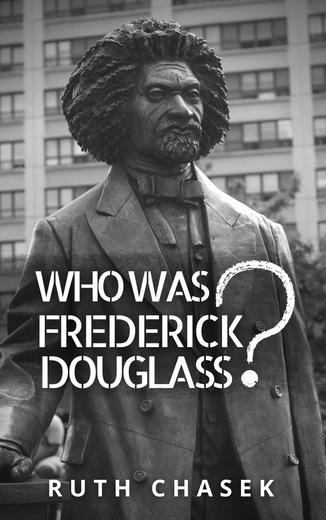
Age:
High School
Reading Level: 5.7
Preface
“Keep pounding on the rock and listen for the thunder.”
- Frederick Douglass, 1861
Keep "faith in the power of truth."
- Frederick Douglass, 1893
“I have always been troubled by the thought of having no birthday.”
- Frederick Douglass, 1893
Chapter 1: Born with No Birthday
In 1818, Frederick Douglass was born into slavery in Maryland. He was the property of a white family. As a slave, he was expected to work for no pay for the rest of his life.
Douglass was born with the name Frederick Bailey. Later, he changed his name.
He only met his mother a few times. She was also enslaved. Douglass never knew his father. Rumor was that his father was one of the white masters.
Douglass also never knew his own birthday. Slave birthdays were not recorded.
Not knowing his birthday bothered him for the rest of his life. Even after escaping slavery. Even after becoming a famous public speaker. Even after running his own newspaper. Even after becoming an advisor for President Abraham Lincoln during the Civil War. Even after becoming the grandfather of 21 grandchildren.
Douglass never could find out the day he was born. He wrote:
"By far the larger part of the slaves know as little of their ages as horses know of theirs, and it is the wish of most masters within my knowledge to keep their slaves thus [unaware]. I do not remember to have ever met a slave who could tell of his birthday."
- Narrative of the Life of Frederick Douglass, p. 1
Chapter 2: I Can Read
Frederick Bailey learned to read and write when he was 11 years old.
It was illegal in the slave states to teach a slave to read and write. Bailey learned to read from his female master, Sophia Auld. She saw that he wanted to learn. Auld's husband was angry with her for teaching Bailey how to read and write. Bailey wrote in the story of his life:
"Mr. Auld found out what was going on, and at once forbade Mrs. Auld to instruct me further, telling her . . . that it was unlawful, as well as unsafe, to teach a slave to read. To use his own words, further, he said, 'A nigger should know nothing but to obey his master—to do as he is told to do. Learning would spoil the best nigger in the world.'”
- Narrative, p. 29
Auld stopped teaching Bailey, but it was too late. He kept learning by asking other boys to teach him what they learned in school. He found a book and read it every day.
"From that moment, I understood the pathway from slavery to freedom . . . I set out with high hope, and a fixed purpose, at whatever cost of trouble, to learn how to read. . . . That which to him was a great evil . . . was to me a great good . . . [and] only served to inspire me with a desire and determination to learn."
- Narrative, pp. 29-30